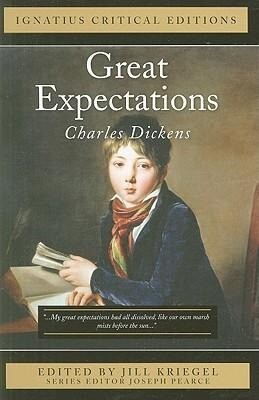
Zustellung: Sa, 18.01. - Do, 23.01.25
Versand in 3 Wochen
VersandkostenfreiBestellen & in Filiale abholen:
Pope John Paul II described Dickens' books as "filled with love for the poor and a sense of social regeneration . . . warm with imagination and humanity." Such true charity permeates Dickens' novels and ultimately drives the characters either to choose regeneration or risk disintegration. In Great Expectations, Pip-symbolic of the pilgrim convert-gains both improved fortunes and a growth in wisdom, but as he acquires the latter, he must relinquish the former-ending with a wealth of profound goodness, not of worldly goods.That the Dickensian message was a Christian one is unmistakable. Reminiscent of an Augustinian model, one of reflection, conversion, and moral improvement, Pip undergoes an internal change that manifests itself in his profound contrition for his earlier deeds and his equally profound resolution to make amends. As we travel with Pip, we find that Dickens leads us to an acceptance of worldly limitations and an anticipation of final salvation.The exciting new edition of Dickens's classic novel includes critical essays by some of today's leading Dickens scholars.
Mehr aus dieser Reihe
Produktdetails
Erscheinungsdatum
01. August 2010
Sprache
englisch
Seitenanzahl
680
Reihe
Classic Starts (R) Series
Autor/Autorin
Charles Dickens
Herausgegeben von
Jill Kriegel
Verlag/Hersteller
Produktart
kartoniert
Gewicht
764 g
Größe (L/B/H)
204/134/48 mm
ISBN
9781586174262
Entdecken Sie mehr
Bewertungen
LovelyBooks-Bewertung am 05.08.2018
Zu Recht ein Klassiker mit einigen der spannendsten literarischen Figuren überhaupt!


















